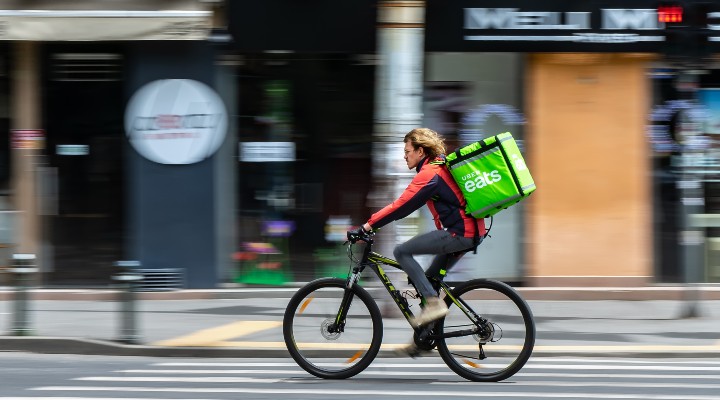With recent lockdowns driving exponential growth in online sales, Australia’s last-mile supply chains have been struggling to keep pace with consumer demand. As consumers continue to opt for convenience and with Christmas just around the corner, Australian retailers are mirroring the behaviour of US, UK and European grocery giants like Albertsons, Waitrose, Sainsbury’s and Carrefour by establishing last-mile delivery partnerships with gig economy players such as Uber and DoorDash. Why are re
retailers turning to the gig economy for the last mile?
In most cases, Australian retailers do not yet have their own networks for same-day or same-hour fulfilment (often referred to as impulse logistics), so these partnerships provide a quick and relatively easy path to delivering on consumer demand for such services.
Research shows that same-day or same-hour fulfilment is becoming a key consideration for consumers when choosing their preferred retailers and brands. This is of increasing importance for essentials like groceries and medical supplies but it is becoming equally popular across other product categories.
The gig economy provides retailers this differentiating customer proposition at a fraction of the cost and complexity of entry, compared with establishing their own micro-fulfilment networks.
These partnerships also enable retailers to maximise value from their existing store networks at a time when shops may be closed or operating at reduced capacity.
Potential drawbacks
Even in light of such advantages, retailers need to consider the impacts on their customer experience of ceding control of the last mile to the gig economy. Regular users of services like Uber Eats and Deliveroo know that no two deliveries are ever the same quality or experience. Will consumers be able to separate a negative delivery experience from the brand or website with which they placed the order?
Experience shows that online reviewers frequently give one-star reviews to products that arrive late or damaged, regardless of how much control the original vendor had over that process. While retailers and online marketplaces frequently moderate or remove negative reviews relating to last-mile issues, they can still do long-term damage to a brand’s reputation.
Most importantly, retailers need to think about the potentially negative connotations of associating their brand with the employee welfare issues currently affecting workers in the gig economy. A slew of delivery driver class-action lawsuits have made headlines in the US this year, from Amazon to Domino’s Pizza. Here in Australia, ASX-listed companies are now required to report on modern slavery and there is ongoing debate about the ethics of the gig economy and the need for better working conditions, worker rights and wages.
Research shows that ethical and sustainable business practices are becoming increasingly important to consumers when making purchasing decisions and selecting brands. While this creates genuine risk to a retailer’s bottom line, it also creates an opportunity for retailers to become advocates for change through the ways in which they structure their partnerships with gig economy players.
Ultimately, providing consumers with more choices as to how to fulfil their online orders can only be a good thing for retailers. As they seek to rapidly expand their last-mile fulfilment offerings through partnerships of any kind, retailers should carefully weigh the short-term benefits against the potential longer-term brand and customer experience risks to ensure they keep their customers into the future.

